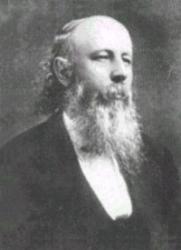2. That, in both acute and chronic diseases, the preference, other things being equal, is to be given to the higher over the lower potencies. The experience of Wurmb shows that, in severe pneumonia, the fifteenth is to be preferred to the seventh and the seventh to the third (centesimal). I should go further and say that, in general, preference should be given to still higher potencies, even to the two hundredth.
3. Experience shows that, while the majority of cases, both acute and chronic, are cured more speedily by the high than by the lower potencies, yet, in some cases, the converse is observed. No explanation of this difference has been discovered, nor can its occurrence be foreseen in any case. While therefore the presumption, in every case, being in favor of the high potencies, the treatment should be begun with them, nevertheless, should no favourable result ensue, recourse should be then had to lower potencies, provided always there be a reasonable certainty that the remedy has been rightly selected.
4. The question, whether the “high potencies” are more generally successful than the lower, and in what proportion they are so, is yet to be determined by statistics drawn from methodical experiment.
5. A general law for the a priori selection of the potency suitable for a concrete case, if such a law be possible, is yet to be discovered.

